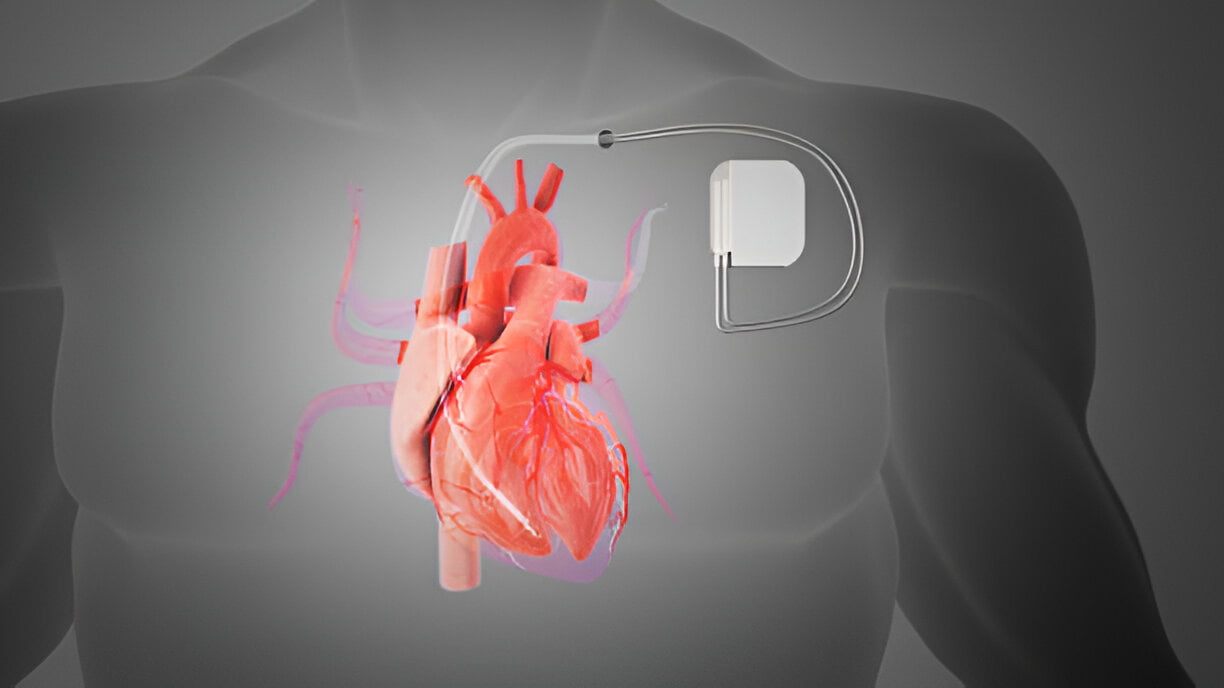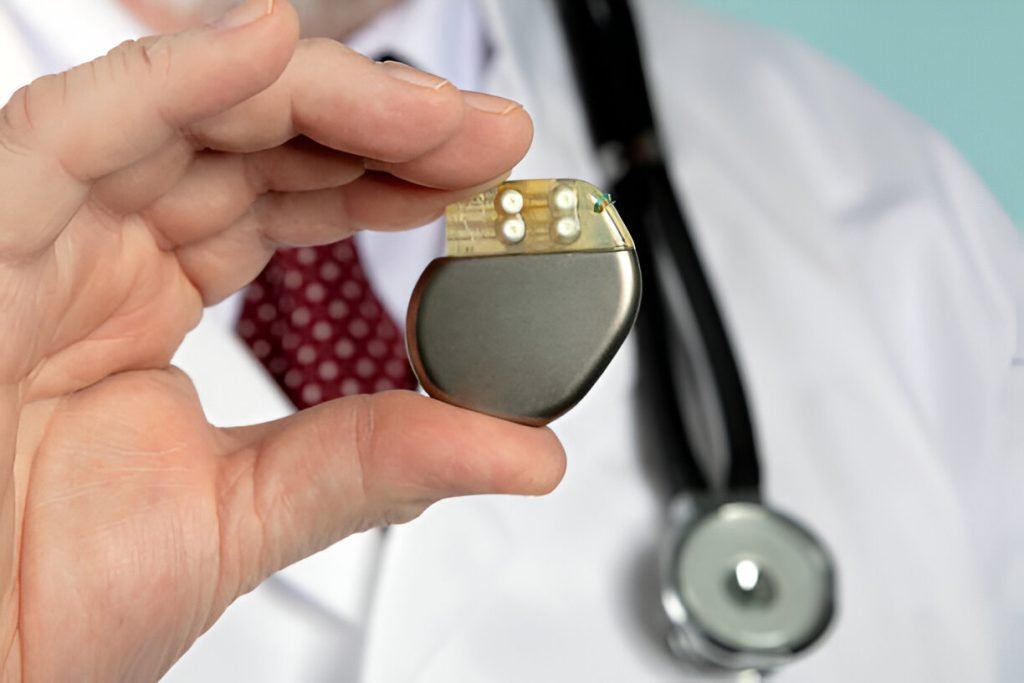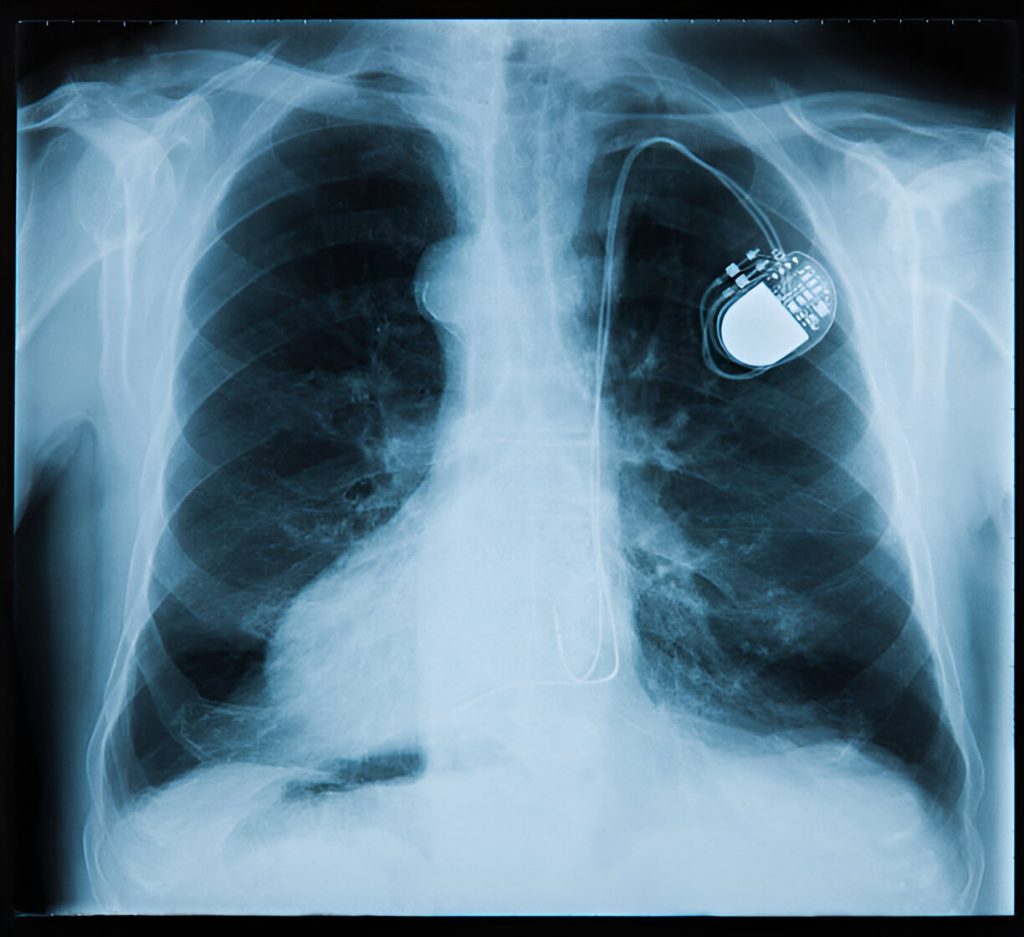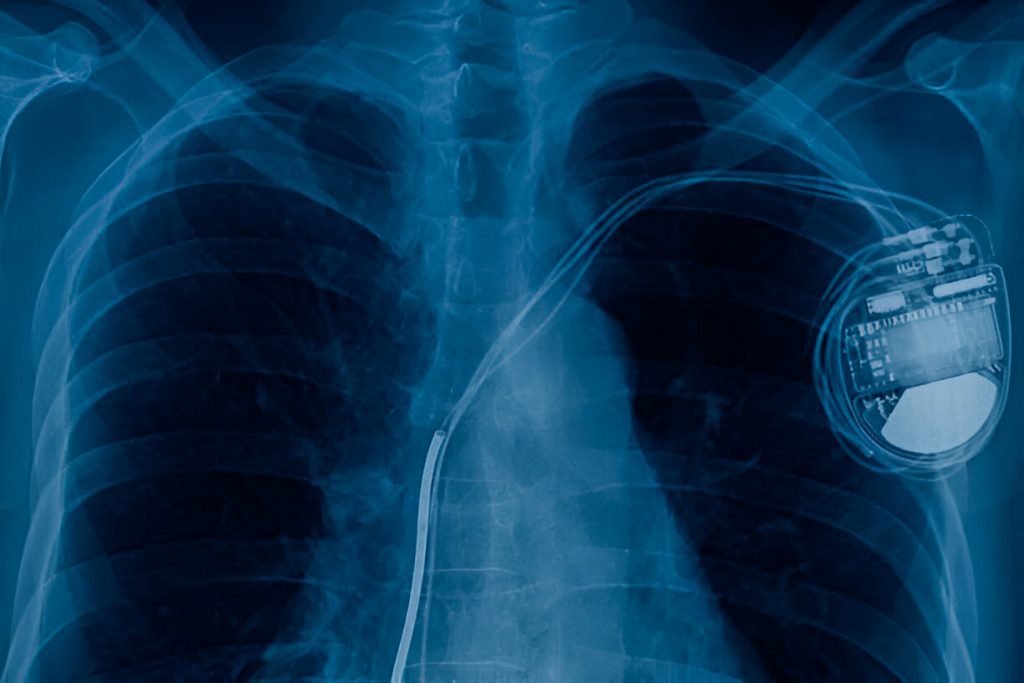About Atrius

A healthy heart is crucial for a long and active life, but when the heart’s natural rhythm is disrupted, medical intervention becomes essential. One of the most effective solutions for managing irregular heart rhythms is the pacemaker. At Atrius Cardiac Care, we are dedicated to providing top-tier pacemakers services, ensuring that our patients receive the best care possible.
The heart’s natural pacemaker, known as the sinoatrial (SA) node, is responsible for maintaining the heart’s rhythm by generating electrical impulses. These impulses travel through the heart, causing it to contract and pump blood effectively.
The SA node is the heart’s natural conductor, ensuring a steady and reliable beat.
However, when the natural pacemaker fails or the heart’s rhythm becomes erratic, an artificial pacemaker may be necessary to restore normal function.
A pacemaker is a small device implanted in the chest to help regulate the heart’s rhythm. It monitors the heart’s electrical activity and, when necessary, sends electrical impulses to stimulate a heartbeat.

A pacemaker consists of a pulse generator (battery and electronic circuitry) and leads (wires) that connect the device to the heart. The pacemaker rhythm is adjusted to meet the specific needs of the patient, ensuring the heart beats at a normal rate.
A pacemaker is a lifeline for those with irregular heart rhythms, restoring normalcy and improving overall health.
Pacemakers come in various types, each designed to address specific cardiac issues. Understanding these types helps in choosing the most suitable device for each patient.
This type uses one lead, usually placed in the right ventricle, to control the heart’s rhythm.
A dual-chamber pacemaker has two leads, one in the right atrium and one in the right ventricle, allowing for more synchronized heart rhythms.
Also known as cardiac resynchronization therapy (CRT), this type has three leads placed in the right atrium, right ventricle, and left ventricle to improve the coordination of the heart’s contractions.
A temporary pacemaker is used for short-term heart rhythm regulation, often during hospital stays or after certain types of surgery.
Choosing the right type of pacemaker is crucial for optimal heart health and patient comfort.
Pacemakers come in various types, each designed to address specific cardiac issues. Understanding these types helps in choosing the most suitable device for each patient.
A single-chamber pacemaker uses one lead, usually placed in the right ventricle, to control the heart’s rhythm. This type of pacemaker is often used for patients with bradycardia or simple heart block, where only one chamber’s rhythm needs regulation.
A dual-chamber pacemaker has two leads, one in the right atrium and one in the right ventricle, allowing for more synchronized heart rhythms. This type is beneficial for patients with advanced heart block or atrial fibrillation, ensuring that both chambers of the heart work together effectively.
Also known as cardiac resynchronization therapy (CRT), a biventricular pacemaker has three leads placed in the right atrium, right ventricle, and left ventricle. This type of pacemaker improves the coordination of the heart’s contractions, making it suitable for patients with heart failure or cardiomyopathy.
A temporary pacemaker is used for short-term heart rhythm regulation, often during hospital stays or after certain types of surgery. It provides short-term rhythm control for patients recovering from surgery or experiencing acute heart issues.
The cost of a pacemaker varies depending on the type, the hospital, and the region. It’s essential to consider these factors when planning for pacemaker implantation.
Understanding the costs involved helps in making informed decisions about pacemaker implantation.
Pacemakers are typically recommended for individuals with certain heart conditions that affect the heart’s rhythm and overall function.
Indications for a Pacemaker:
There is no strict age limit for pacemaker implantation. Both young and elderly patients can benefit from a pacemaker, depending on their specific heart condition.
Pacemakers are vital for individuals experiencing significant heart rhythm issues, regardless of age.

Life expectancy after pacemaker implantation can be significantly improved, with many patients living long, healthy lives. The device helps manage symptoms and prevent complications, enhancing overall quality of life.
A pacemaker can significantly improve life expectancy and quality of life for those with heart rhythm issues.
After pacemaker implantation, certain precautions are necessary to ensure the device functions correctly and to avoid complications.
Following precautions after pacemaker surgery is crucial for ensuring the device’s longevity and optimal performance.
Adhering to post-surgery precautions ensures a smooth recovery and long-term pacemaker function.
Pacemakers are life-saving devices that help manage heart rhythm issues, significantly improving patients’ quality of life. With advancements in technology, modern pacemakers are more efficient and reliable, offering numerous benefits to those in need.
A pacemaker is a beacon of hope for those with irregular heart rhythms, restoring normalcy and enhancing life quality.

At Atrius, we are committed to providing comprehensive cardiac care, including expert pacemaker implantation and management. Our team of experienced cardiologists and state-of-the-art facilities ensure the best possible outcomes for our patients.
Our cardiologists are highly trained in pacemaker implantation and management, ensuring precision and care in every procedure.
We use the latest pacemaker technology, including devices from the best pacemaker companies like Medtronic pacemaker, ensuring reliability and effectiveness.
We prioritize patient comfort and convenience, providing personalized care plans and continuous support throughout the treatment journey.
Our aftercare services include regular monitoring, follow-up appointments, and guidance on precautions after pacemaker surgery to ensure long-term health and well-being.
Choose Atrius for unparalleled cardiac care and support, ensuring your heart health is in the best hands.
For more information or to schedule an appointment, visit Atrius Cardiac Care. Let us help you take the next step towards a healthier heart and a better life.